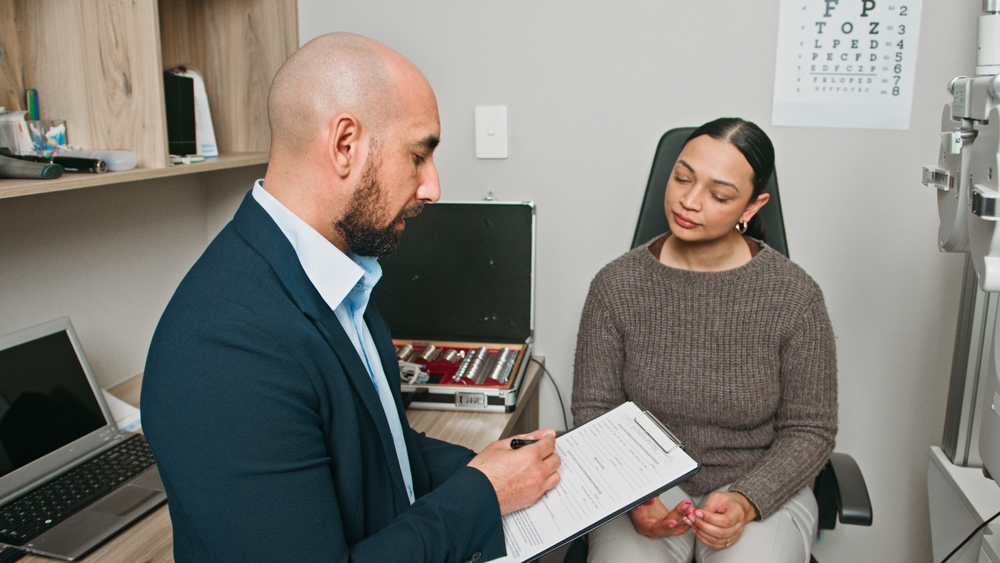Modal Title
Lorem ipsum dolor, sit amet consectetur adipisicing elit. Iusto porro officiis beatae accusantium nam quis soluta? Sapiente in non inventore, explicabo distinctio, nostrum impedit delectus obcaecati corporis officiis, nihil repellendus.

Lorem ipsum dolor, sit amet consectetur adipisicing elit. Iusto porro officiis beatae accusantium nam quis soluta? Sapiente in non inventore, explicabo distinctio, nostrum impedit delectus obcaecati corporis officiis, nihil repellendus.

Blog:IPL vs. RF for Dry Eye: What’s the Difference and Which One Is Right for You?

Dry, irritated eyes can affect your comfort, productivity, and even your quality of life. For many people, dry eye is a persistent problem that eye drops alone can’t solve. If you’ve been searching for lasting relief, you may have come across two cutting-edge treatments: Intense Pulsed Light (IPL) and Bipolar Radiofrequency (RF).
Dry eye occurs when your eyes don’t produce enough tears, or when the quality of your tears is poor and they evaporate too quickly. This results in discomfort, blurred vision, and even damage to the surface of the eye if left untreated.
There are two primary types of dry eye:
• Aqueous-deficient dry eye: Not enough tears are produced.
• Evaporative dry eye: Tears evaporate too quickly, often due to Meibomian gland dysfunction (MGD)—the most common cause.
Both types can lead to a variety of symptoms, from mild irritation to chronic pain.
While over-the-counter drops can provide temporary relief, they don’t address the root cause of dry eye. Advanced treatments like IPL and RF target the underlying issues, such as inflammation and blocked oil glands, offering longer lasting relief and real improvement in your eye health and comfort.
IPL therapy uses pulses of light energy to target inflammation and abnormal blood vessels around the eyes. Originally developed for skin treatments, IPL has proven highly effective for dry eye, especially when Meibomian gland dysfunction is the culprit.
How IPL works:
• The light pulses gently heat and shrink abnormal blood vessels, reducing inflammation.
• The treatment helps unclog Meibomian glands, improving the flow of healthy oils into your tears.
• Patients typically need a series of treatments for the best results.
Benefits of IPL:
• Reduces inflammation at the eyelid margin
• Improves tear stability
• Addresses root causes, not just symptoms
Bipolar RF uses gentle, targeted radiofrequency energy to warm the skin and deeper tissues around the eyes. This warming effect helps to loosen and liquefy the oils in your Meibomian glands, making it easier for them to flow and nourish your tear film.
How RF works:
• The RF applicator delivers controlled heat to the eyelids, stimulating collagen production and encouraging healthy gland function.
• The warmth helps soften and unclog blocked glands.
• RF can also have cosmetic benefits, tightening the skin around the eyes.
Benefits of RF:
• Gentle and relaxing, like a warm massage for your eyelids
• Stimulates gland health and function
• May improve skin tone and reduce fine lines
The choice between IPL and RF depends on your unique case. If inflammation and visible blood vessels are the main issues, IPL may be the more effective option. On the other hand, if your dry eye is caused by blocked or sluggish oil glands, RF could provide better relief.
For patients with advanced dry eye or symptoms that have not responded to other treatments, a combination of IPL and RF may offer the most benefit. This combined approach can address multiple underlying causes for maximum improvement.
Ultimately, personalized care is key. Our optometrist will carefully assess your symptoms, examine your tear film, and recommend the treatment best suited to your needs. At Eye of the Tiger Vision, we develop tailored treatment plans for our patients and may recommend using both IPL and RF together for comprehensive dry eye management.
Don’t let dry eye control your life. Modern therapies like IPL and RF can offer significant, lasting relief by treating the underlying causes. The best approach depends on your individual needs and the specific cause of your dry eye.
Ready to find out which treatment is right for you? Schedule a dry eye evaluation with Eye of the Tiger Vision and take the first step toward clearer, more comfortable vision. Visit our office in Hamilton, New Jersey, or call (609) 527-9500 to book an appointment today.